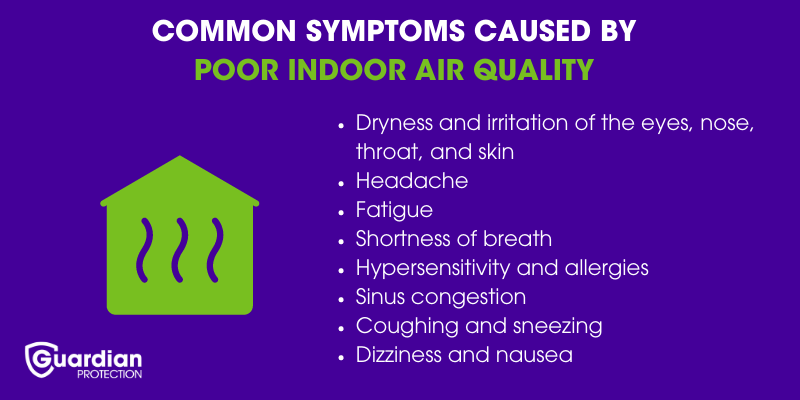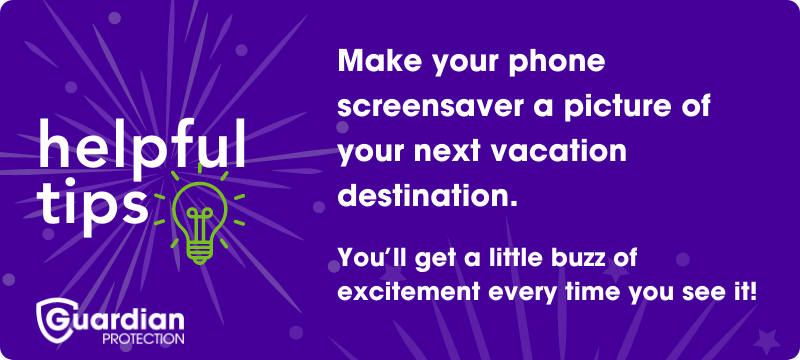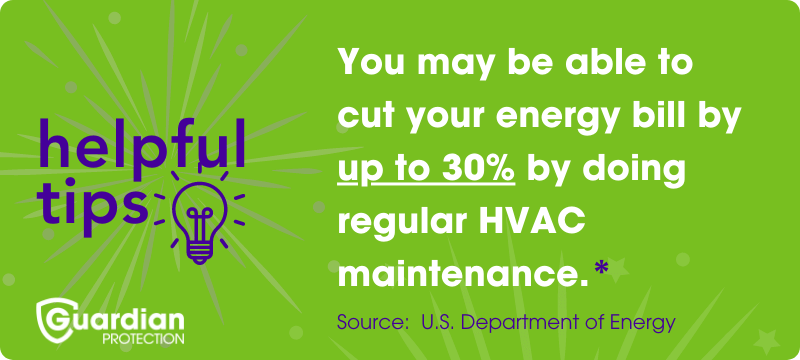Even at the gates of 2022, we’re still waiting on a full return to normal. But that doesn’t mean this year isn’t full of promise!
Whatever 2022 holds, we want you to not only stay safe, but thrive. We’re sure you want that, too. So what New Year’s resolution could you set that would help make you, your home, and your family healthier, calmer, and ready to take on the year?
Get ready, because we’ve put together a list of ideas to get your wheels turning. Enjoy, and happy New Year!
1. Make a hefty donation of your unused belongings.
According to the EPA Office of Solid Waste, Americans throw away more than 68 pounds of clothing and textiles per person per year. Could your closets use a clean out?
If you have stuff you don’t need or want, there are plenty of people in need. Gather up your new, unused, or gently used belongings for donation to a charitable organization. Skip anything that can’t be used as-is (devices that are missing parts or broken; ripped, torn, or stained clothing, etc.).
Here’s a few more donating tips from Goodwill:
- Give to charities you know and trust.
- Wash or dry-clean clothing.
- Test electrical equipment and battery-operated items.
- Include all pieces and parts to children’s games and toys.
- Don’t give items that have been recalled, banned, or do not meet current safety standards.
- Don’t leave items unattended outside a collection center.
2. Improve your indoor air quality.
Air quality at home is an extremely important and often over-looked issue. Pre-pandemic, the EPA reported that people spend 90 percent of their time indoors
Poor air quality can have a larger impact on your overall health than you think. Some of the common symptoms, like headache or fatigue, are easy to dismiss or seem attributable to other illnesses.

If you think you have symptoms that may be related to your home environment, the EPA recommends discussing them with your doctor or your local health department to see if they could be caused by indoor air pollution.
This year, investigate and address primary causes of indoor air problems, including:
- Tobacco products
- Asbestos
- Harsh chemicals and cleaning supplies
- Radon
- Pesticides
- Poor ventilation
- Malfunctioning or contaminated heating and cooling systems
- Pollen
- Mold
- Bacteria
- Sources of carbon monoxide (leaking chimneys or furnaces, space heaters, gas stoves, etc.)
3. Makeover your morning routine.
Most of us have a pretty steady morning routine, whether we realize it or not. Unfortunately, some of those routines leaving us feeling scattered and stressed out.
The way you start your day can be a major predictor for how the rest of that day goes. Organized and stress-free mornings can make you and your family more productive, healthy, and calm in 2022.
Routines take time to establish, and making a ton of changes all at once can feel overwhelming, so start slow.
Ask yourself what you could use a little more of throughout the day. More free time? Happiness? Energy?
Use this answer to set your goals, and aim to make one or two small changes at a time.
Guardian customers can use our Scenes feature to help automate and customize their morning routines. On your way out the door, you can tell your security system to lock the door, arm your security system, and turn off the lights — all with just the push of a button!
4. Plan your next vacation.
Travel has been difficult, if not impossible, for a while now. Maybe you missed an important event, or had to cancel vacation plans you were really looking forward to.
We’d like to propose a little something to boost your spirits: Make a resolution to plan your next vacation. A study conducted by the Institute for Applied Positive Research found that 97% of respondents report that having a trip planned makes them happier.
The vacation doesn’t have to be expensive. It doesn’t have to be long, or far away. It doesn’t have to happen in the next few months, or even the next year. Just get it on your calendar.
Vacations are a time to relax and unwind, not worry about what’s happening at home. A professionally monitored smart home security system will give you peace of mind that everything’s quiet on the home front, and you can check in anytime from a mobile app!

5. Get an energy assessment.
Do you know where most of your home’s energy is going? If not, consider conducting a home energy audit to help you identify if it’s being wasted. It’s good for your wallet, and good for the environment!
For an in-depth analysis, hire a professional to come in and do an assessment. To choose an experienced auditor, look for certifications from organizations supported by the U.S. Department of Energy. You can learn more about what to expect from an auditor at Energy.gov.
Heating, cooling, and lighting typically make up more than half of the energy your home uses. Consider investing in smart home automation devices like smart thermostats and smart lighting for a simple and stress-free way to save.

6. Review your insurance coverage.
When’s the last time you sat down with your insurance agent and reviewed your annual rates?
It’s easy to set your insurance policies on autopilot. They renew automatically every year, and agents aren’t required to check if you are eligible for new discounts.
In other words, you might be leaving money on the table.
Give your insurance agent a call and schedule a comprehensive insurance rate review. Tell them you want to reassess your premiums for absolutely everything — home, car, life, business, etc. — to see if you qualify for a discount.
Some insurance companies will give you a discount just for having professionally monitored home security, so don’t forget to ask. They will probably ask for your Certificate of Monitoring to verify that you currently have professional monitoring.
Log into your Guardian account to download your Certificate of Monitoring.
7. Make your home more relaxing.
We’ve all spent a lot of time at home over the last couple of years. It can make your house feel less like a haven and more like a cage.
Why not set your sights on giving your home a good dose of positive energy? Here are a few simple and inexpensive tips to make your living space feel more relaxing:
- Upgrade your light bulbs. Some harsh LED lightbulbs can cause headaches and irritate your eyes. Consider replacing them with warmer, soft white smart bulbs — preferably ones that work with light modules, allowing for lighting control and even more peace of mind!
- Add mood-boosting scents to your home. It may seem hard to believe, but research shows certain scents have the ability to change your mood. For relaxation, try scents like lavender, lemon grass, jasmine, and bergamot.
- Play around with rearranging your space (e.g., change the orientation of your bed, replace your centerpieces, adjust the position of your sofa).
- Choose the right colors. Painting is a low-cost way to completely transform its look and feel. For calmness and relaxation, try lighter colors, or shades of blue and green.
8. Create a family emergency plan.
If an emergency occurs, your family may not be all in one place. This is why it’s so important to have a family emergency plan.
An emergency plan tells your immediate family what to do, how to find each other, and how to communicate in case of an emergency.
Your plan should include important contact info, evacuation routes, meet-up locations, medical needs, and communication strategy. Practice your plan at least twice a year, and ideally, try different versions of your plan for events like a fire, a home invasion, or extreme weather.
If you haven’t mapped out a plan like this for your household, set a goal to do it this year! It’s one of the best steps you can take to prepare your family for the unexpected.
9. Test (and if needed, upgrade) your environmental and life safety devices.
Environmental and life safety refers to all the essential devices that help protect your home from destructive elements like fire, carbon monoxide, and flooding. They aren’t the most exciting tech tools on the block, but they can save your life, your home, and your wallet from catastrophic damage.
Test each and everyone this year, including:
- Smoke detectors
- Heat detectors
- Room temperature sensors
- Water sensors
If you or someone in your life uses a medical alert pendant or panic button — a wearable device used to signal for help in the event of a medical emergency — add that to the list.
Replace the batteries as needed. If you have environmental and life safety devices in your home that are not monitored, we highly recommend switching to professional monitoring.
10. Upgrade your video security cameras.
If you have home security cameras that are getting up there in age, you’re missing out on a variety of benefits now available in newer, smarter cameras, such as:
- Better image quality
- Two-way audio
- Night vision
- Sleeker design
- Mobile access
- Live video feeds
If you’re really trying to take your security camera game to the next level, make sure your new cameras support Video Analytics.
Video Analytics technology gives you custom video alerts that help you focus on the activity that matters. It can distinguish between people, vehicles, and animals in your video clips, and alert you — or not — according to your preferences.
11. Reassess your retirement plan.
According to the U.S. Department of Labor, only about 55 percent of all workers are earning retirement benefits at work, and many are not familiar with the basics of investing.
Saving for your retirement is an ongoing process that should be revisited at least once a year. Checking in on your plan helps ensure you stay on track for your retirement goals and determine whether you need to adjust or contribute more.
If you’re new to retirement planning, USA.gov offers free, helpful resources on retirement savings, Social Security, and more.
12. Review your paid subscription services.
Have you ever signed up for something online and completely forgotten about it? Research from consulting firm West Monroe revealed that the average consumer spends about $273 a month on subscription services.
By subscription services, we’re not just talking about typical necessities like your phone or WiFi bill. Subscriptions could include:
- Streaming services, like Amazon or Netflix
- Lifestyle boxes, like Birchbox or FabFitFun
- Pet boxes, like BarkBox
- Meal services, like HelloFresh or Green Chef
- Health and fitness apps, like HeadSpace and MyFitnessPal
- Cloud storage, like iCloud or Dropbox
And on, and on.
If you don’t have a running list to review, make one! There’s a good chance you’re paying for something that has outlived its usefulness. If you want to create a digital version of your list, Google Sheets is free, and you can access it across multiple devices.
Better yet, go with a more automated option. Both Apple and Google have features to help you manage your subscriptions from your smartphone or tablet. There are also apps like Truebill that can identify and cancel unwanted subscriptions.

13. Make your home smarter with home automation devices.
If your biggest hope for 2022 is to have more hours in the day, you might want to consider raising your home’s IQ with smart home automation. Here are just a few ways you can use a smart device to simplify daily life:
- A smart thermostat lets you control your home’s temperature from anywhere, and set customized heating and cooling schedules.
- Video doorbells monitor your front door, help you keep an eye on deliveries, and allow you to interact with visitors right from your smartphone.
- Smart locks allow you to lock and unlock your door remotely and assign unique user codes to friends and family.
- Garage door control means never having to worry about whether you left the garage door open.
We’re just scratching the surface here of what smart devices can do. And when used together, the possibilities are practically endless.
Smart home devices can also be paired with Guardian home security systems to help manage and protect your entire home. There are countless ways to customize and grow — it’s one of the many perks! If you started simple with just a security panel and a few professionally installed sensors, you have a lot of room to build as your needs change.
If you’re interested in adding new technology to your home security system, give us a call at 1.800.PROTECT (1.800.776.8328).

